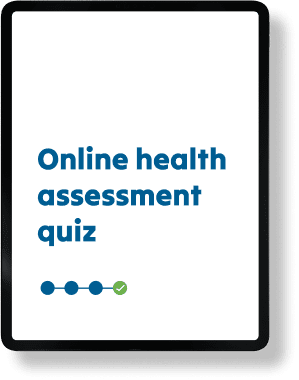Management
Coeliac disease is a serious medical condition that requires an individualised long-term follow-up plan to maintain health and to reduce the risk of complications. Upon diagnosis, it is important to
-
Learn the skills needed to follow a gluten free diet,
-
Screen for associated conditions, and,
-
Screen family members for coeliac disease.
Treatment goals are to reverse the damaging effects of gluten, resolve symptoms, improve quality of life and monitor for complications. Ongoing medical review is important to ensure these treatment goals are met.
Coeliac Australia is here to support you at every stage of your gluten free journey. Please join us.
Use this helpful checklist to guide your follow up plan:


Monitoring and follow-up of
coeliac disease
Download fact sheet
When first diagnosed
-
Join Coeliac Australia –Those who join Coeliac Australia are better equipped to achieve a strict gluten free lifestyle than those who try to do it alone. Membership will provide you with all of the resources you need to manage your gluten free diet and keep you up to date with new information.
-
Visit a dietitian – an Accredited Practising Dietitian will provide individualised education about the gluten free diet and tailor a plan to ensure your diet is balanced and healthy. It is important to dedicate time to this appointment to learn the skills required to follow the diet adequately. The dietary impact of other medical conditions you may have will also be considered.
-
Family screening – Immediate family members of someone with coeliac disease have a 1 in 10 chance of also having the condition. Family members should be screened for coeliac disease using the coeliac serology blood test. A positive blood test should be followed up by a gastroenterologist to confirm the diagnosis.
-
Bone density scan – It is recommended that all adults diagnosed with coeliac disease have a bone density scan to check for thinning of the bones (osteopaenia or when more severe, osteoporosis) which increases the risk of fractures. Up to 75% of adults with coeliac disease will have reduced bone mineral density at diagnosis. Treatment with a gluten free diet can significantly improve bone density, particularly within the first year. The level of improvement will depend on your age and how long coeliac disease has been untreated for. Those with medically diagnosed coeliac disease are entitled to a Medicare rebate for a bone density scan. It is not necessary for children to have their bone density measured.
-
Routine Tests to screen for associated conditions .
- Thyroid function test (Graves’ disease or Hashimotos Thyroiditis)
- Liver function tests.
- Nutrient screen including iron studies, vitamin B12, folate and vitamin D.
Expanded testing should be considered if malabsorption is present e.g. magnesium, zinc, calcium and copper. Supplementation should be instituted to correct deficiencies.
-
Immunisations .
- Annual influenza vaccination and COVID-19 vaccination are recommended
- Vaccination against pneumococcus is recommended.
- Vaccination against the other main encapsulated bacteria Neisseria meningitidis and Haemophilus influenzae type B should be considered
-
Mental wellbeing – Consider whether the input of a psychologist may help with the transition to a gluten free diet and managing the diagnosis.
Review appointments
Review appointments should occur approximately every 3-6 months until you are well.
Once you are symptom free, have normal nutrient levels and normal coeliac serology (and if done, a normal small bowel biopsy result), follow-up can be extended to once every 1–2 years.
At each review appointment:
-
Coeliac serology blood tests (tTG, DGP, total IgA) should be repeated. While levels of these antibodies can remain elevated for some months post diagnosis, gradual normalisation should occur. Once levels have returned to normal, subsequent re-elevation is a more reliable indicator of gluten re-exposure.
-
Coeliac serology blood tests (tTG, DGP, total IgA) should be repeated. While levels of these antibodies can remain elevated for some months post diagnosis, gradual normalisation should occur. Once levels have returned to normal, subsequent re-elevation is a more reliable indicator of gluten re-exposure.
Duodenal biopsy
Your specialist may consider repeating a gastroscopy with small intestinal biopsies to confirm healing of your small intestine and adequacy of the gluten free diet. The optimal timing for this has not been determined but 2 years after starting the gluten free diet is often recommended. Ongoing biopsies are not required unless indicated by your gastroenterologist.
Ongoing
-
The bone density scan should be repeated every five years, or more frequently if required.
-
Remain a member of Coeliac Australia – this will ensure that you are kept up-to-date with the most accurate and credible information on coeliac disease and the gluten free diet.
-
Follow up with your dietitian.
What if I don’t feel better on a gluten free diet?
Once you are diagnosed and start your gluten free diet, your symptoms will start to resolve and the healing process will begin. This process can take some time.
Your age at diagnosis, the severity of initial damage, genetic factors, some medications and how well you follow the diet can all play a role in your rate of healing. In some cases, symptoms do not resolve as expected. If you have ongoing persistent symptoms, despite following a gluten free diet, it is important you talk to your doctor about it.
Our fact sheet may help.















